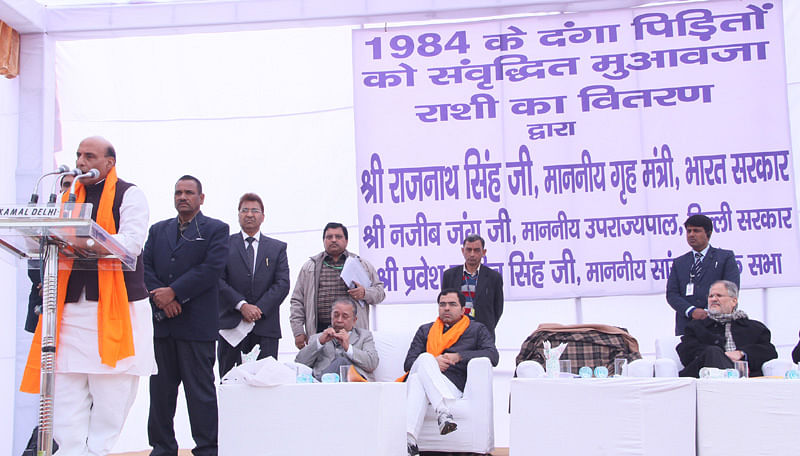The 241 cases were closed by an SIT set up in 2015 and the CBI for lack of evidence.
Starting 5 September, two former Supreme Court judges, J.M. Panchal and K.S. Radhakrishnan, will re-examine 241 cases related to 1984 riot cases.
The cases were closed twice by investigative agencies – by the Special Investigation Team set up in 2015 and the Central Bureau of Investigation (CBI) – for lack of evidence.
A three-judge bench of the apex court headed by Chief Justice Dipak Mishra had appointed a supervisory team of former judges to scrutinise the cases, and file a report whether there was any justification to close these cases.
The former judges are likely to file a report in three months.
The central government had appointed an SIT in 2014, ahead of the assembly polls in Delhi with a mandate to look into riot related cases that were closed either by CBI or the Delhi Police. The SIT reports to the Ministry of Home Affairs.
Out of the 293 cases that the SIT looked into, only 52 cases could go to trial. Around 199 cases were closed initially and over 42 have been closed after conducting investigation.
A law officer with knowledge of developments in the case said that many cases were closed simply because either the accused or witnesses are dead.
“It has been 33 years. Even if we can find some evidence, it will be very difficult to prove anything conclusively in trial. If two investigative agencies have reason to close the cases, there’s little the new committee can come up with” the officer said.
Various committees comprising of apex court judges have recommended re-opening and re-investigation of the riot related cases.
H.S. Phoolka said that re-opening of these cases will assuage the feelings of victims and give a “sense” of some justice. “Lapse of time is no limitation, especially when the evidence is still there and there is likelihood that some people may be punished.”
